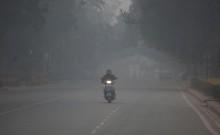
The BBC documentary featuring an interview with the accused of the brutal gang-rape and murder of a 23-year-old paramedic student inside a bus in New Delhi in 2012 has become a bone of contention in India and the world over.
British filmmaker Leslie Udwin has been in the eye of a storm ever since the documentary aired on BBC. The Indian government has accused Udwin of violating the terms and conditions of her permit to interview rapist Mukesh Singh inside Tihar Jail. She reportedly did not clearly indicate the reason behind the interview.
Udwin, the London-based film producer currently working for Assassin Films Ltd, has been awarded the London Critics' producer of the year award in the past according to her Linkedin profile. She has also won a British Academy Award for the best British film and produced independent British-funded film 'East to East' which has reportedly been a "highest grosser". The sequel to the film called 'West to West' was also critically acclaimed.
She was, however, little known in India before the controversy surrounding the documentary 'India's Daughter' flared up.
Udwin on Thursday denied claims that she had breached the contract with the prison by airing the interview adding that India's legal actions – which included banning the documentary -- had no "legal or practical basis", the BBC reported.
In the interview, the accused who is facing the death penalty for raping Nirbhaya shows no remorse and instead blaming the victim for roaming around late in the night and for "resisting" the rape—a statement that has irked the Indian society.
Home minister Rajnath Singh has threatened to take "action" against BBC for airing the film and has promised an inquiry into how Udwin gained access to the jail.
The Tihar Jail authorities have claimed that she has broken the agreement by not letting Indian government carefully examine the contents and purpose of the documentary.
The filmmaker however insisted that all the legal procedures were followed. "I wrote an impassioned letter to the director general of prisons. She granted me an in-principle permission," Udwin told BBC.
"The Ministry of Home Affairs then granted a written and signed permission. I got a signed permission from the convict in this case and a permission signed by the prison authorities too," she claimed.

















